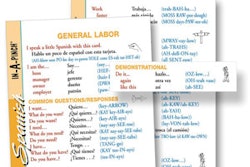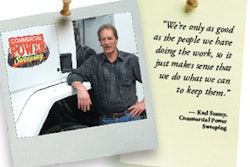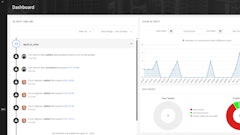
Things appear to be fine in your organization. There is a sense of calm flowing among your workers. Employees are interacting in a respectful way and are working well as a team.
Then your company lands a huge new contract. Everyone is working overtime. Voices are rising and fingers are pointing. The majority of your day is spent playing referee. You walk outside to see if there is a full moon in sight. When you return, there is another employee in your office waiting to complain about a co-worker.
Conflict in the workplace is inevitable. When you throw a group of people together, in close quarters, differences are bound to surface. But, the news is not all bad. Some conflict in the organization can be beneficial. Differences of opinion encourage creativity, change and progress. If addressed early, conflict can also provide insight into larger issues that may be brewing.
Sources of conflict
When situations get out of control, they can be difficult to address. Familiarizing yourself with the following common sources of conflict will help you to diffuse situations before they occur:
Lack of clarity - Employees wind up in turf wars when boundaries aren't clearly defined. Well-written job descriptions, clear directions and defined reporting relationships can help prevent this situation.
Limited resources - In today's environment where people are asked to do more with less, there is often conflict over time, money and supplies. When you observe conflict in the workplace, determine if employees have adequate resources to do their work. Whenever possible, include employees in the resource allocation process. This will provide them with a better understanding of how allocation decisions are made in your work group.
Conflicts of interest - Individuals fighting for personal goals and losing sight of company goals can create quite a ripple in the organization. Remind employees how their goals and the company's goals are mutually dependent on one another.
Power struggles -The need to control is at the root of many workplace conflicts. Who should have that information? Who should be involved on that project? Who gets the new vehicles? Recognize that power struggles exist. Teach employees how to manage relationships in the organization so they can effectively navigate through their personal relationships at work.
Tips for dealing with conflict
A strong supervisor gives employees the tools needed to resolve conflict situations on their own, rather than continuously playing the role of referee. Here are some suggestions to help you transition from referee to coach:
- Encourage employees to work things out on their own. Provide them with guidance.
- Ask employees what they've done to work out a situation.
- If appropriate, suggest a cool down period to allow parties to calm down.
- Look for core causes.
- Help the individual focus on specific behaviors, not personality.
- Redirect the person making the complaint back to the individual he or she is having the conflict with and offer suggestions on how to approach this person.
- Request this person give you feedback on how things went. Offer additional guidance, if appropriate.
Since disagreement is inevitable, it makes good business sense to train employees and management on how to effectively deal with conflict in the workplace. Your investment will reap immediate dividends. Employees will spend less time focusing on one another and more time focusing on their jobs and your customers. Listen closely. Calm has returned to your organization.
© 2008 Human Resource Solutions. All rights reserved.
Roberta Chinsky Matuson is the President of Human Resource Solutions ( www.yourhrexperts.com) and has been helping companies align their people assets with their business goals. She is considered an expert in generational workforce issues. Roberta publishes a monthly newsletter "HR Matters" which is jammed with resources, articles and tips to help companies navigate through sticky and complicated HR workforce issues. She has appeared on FOX's "The O'Reilly Factor" and has been quoted in The New York Times, Boston Globe, and many other national business publications. Visit Roberta's new blog on Generation Integration http://generationintegration.typepad.com/matuson/. She can be reached at 413-582-1840 or [email protected].



















